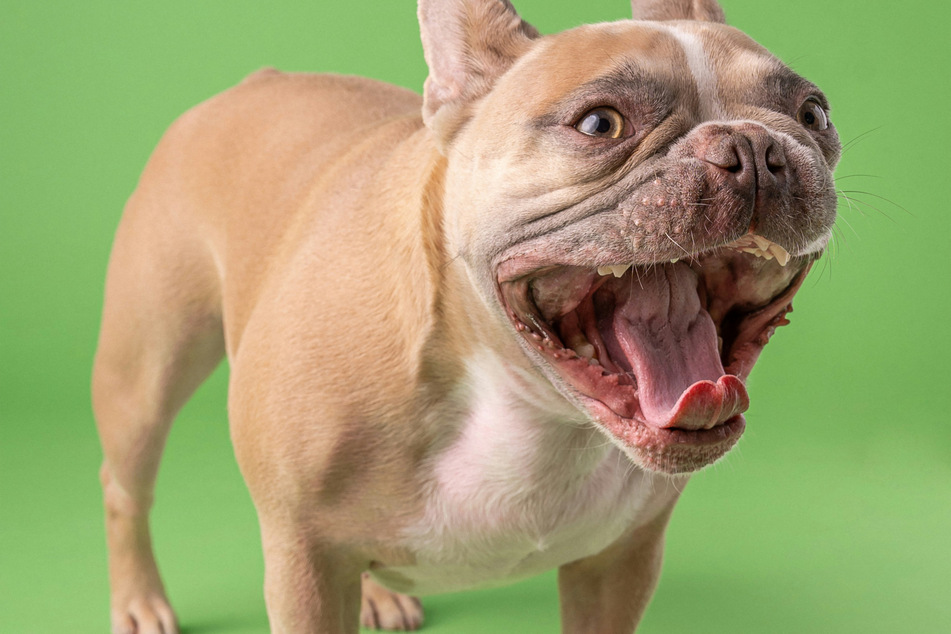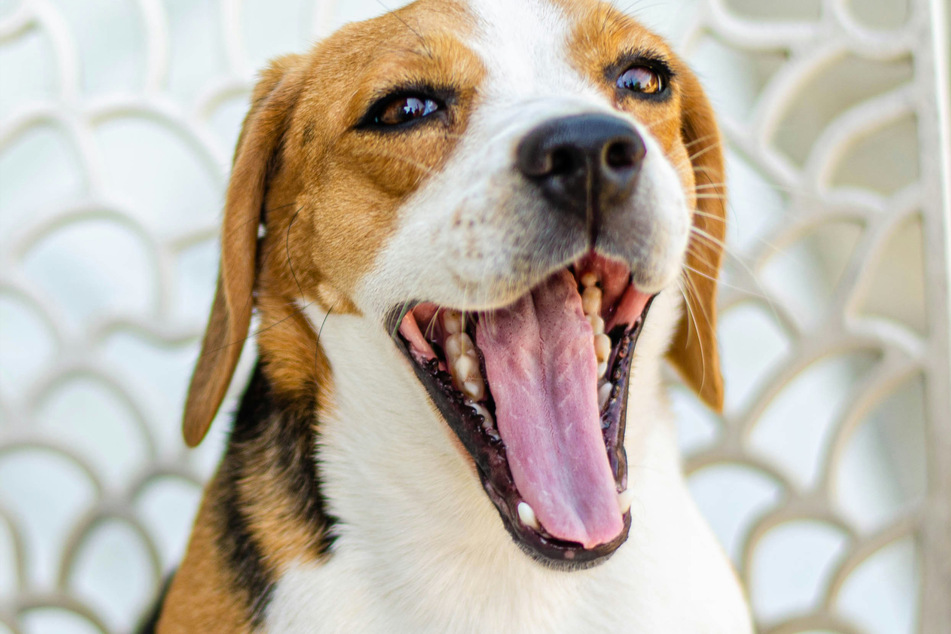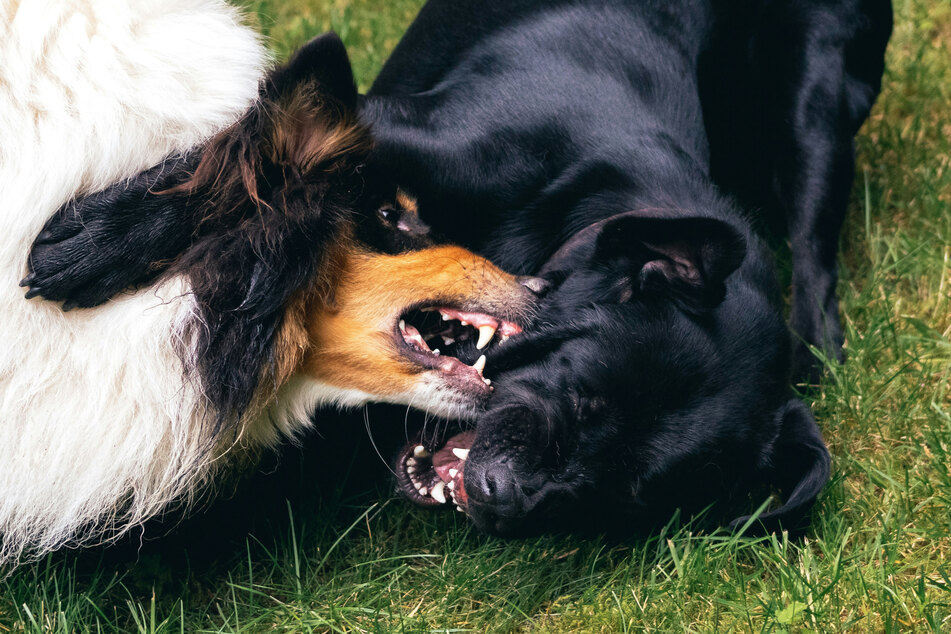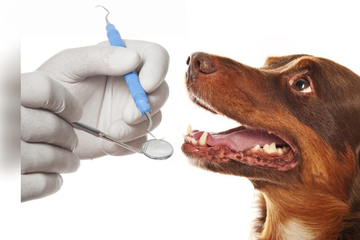Puppy teething: When, why, and what to do
Every dog goes through a teething phase when it's young, and it can be a real pain for its owners. What is puppy teething, how long does it last, how can you help, and what else should you know?

When a puppy enters its teething phase, everything goes haywire, with the little dude running around and chewing on everything it can get its jaws around.
While it might be a normal behavior, it is still a pain in the backside and something that you should be aware of and learn how to deal with.
What is puppy teething, and what do you need to know about it?
Puppy teething age: When do puppies teethe?
In most cases, a puppy will start teething around the third and fourth week of its life, as its baby teeth start to push through the gums. Unlike in humans, where a baby's deciduous teeth take months to fully come out, a puppy will only take about two to three weeks to go from the beginning of its teething period to having a full set of teeth.
The process begins with the incisors, followed by the canines, and then the remainder of its teeth. This is a relatively sore process for your new darling doggo, but one that luckily doesn't last very long and is completely natural and relatively easy to manage.
Important: Teething is a natural process for any dog to go through, and comes with its own set of symptoms and challenges. Be prepared for them if you have puppies in the house and don't get frustrated when they behave erratically.

How long does puppy teething last?
Your puppies' deciduous teeth will generally last about eight weeks once they have fully come through. Most dogs will lose their baby teeth starting around their 12th week, and they will gradually drop out as their adult and permanent biters start coming through their gums.
This is another period of change, which generally occurs only a few weeks before the puppy is ready to move away from its mother and siblings and into an independent human household.
The dropping out of your puppies' original teeth will take up to six or so months in total, so be prepared to be in for the long haul on this one.
Puppy teething stages
There are five different stages of puppy teething, and your dog will go through a number of changes and side effects during the process. While "teething" is thought to purely be the beginning of this process, the period in which teeth start emerging and your dog starts trying to bite things actually lasts around six months.
Here are the five stages of puppy teething:
- Stage 1 - Deciduous teeth (3–4 weeks): Your puppy will first start growing its deciduous (baby) teeth.
- Stage 2 - Completed deciduous teeth (6–10 weeks): Your doggo's baby teeth will be completely grown and your dog can start weening onto solid food.
- Stage 3 - Adult teeth begin appearing (12–16 weeks): Your puppy's baby teeth start the process of falling out as new and permanent teeth begin to grow.
- Stage 4 - Premolars begin to form (around 20 weeks): Your dog's premolars will start to push through the gums. This is a particularly painful period and one in which biting is common.
- Stage 5 - The full set (28–30 weeks): Finally, your dog has a full set of all 42 teeth and is ready to head out into the world and get chomping.
Important: Please keep in mind that these are generalized stages and every dog will be a little different, moving on from stage to stage at a time when it is ready, even if that might seem a little early or late compared to this list.
How to help a teething puppy

There are a few basic solutions to puppy teething.
Simple and easy to implement, they are not meant to totally remove the problem, which is impossible, but instead to simply and quickly relieve the symptoms themselves.
As a result, this is not a "solution" but more a way to help your dog get through what can be an uncomfortable time in its life.
Here's how to help a teething dog:
- Puppy toys for teething: Get your pooch a fantastic puppy toy that has been designed for teething dogs. We have some examples below.
- Dog-proof your home: Make sure that there are plenty of availabilities in your house for chewing. This means toys, bits of furniture, dog blankets, so on and so forth. Additionally, guarantee that nothing dangerous is lying around ready to be bitten or swallowed by your dog.
- Personal precautions: Be aware of biting tendencies in your darling doggo and be careful when giving pets or cuddles.
- Training: Making sure to properly train your puppy is extremely important for a variety of reasons, and is one of the crucial steps in raising a young dog.
Puppy toys for teething
Puppy toys that have been specifically designed for teething dogs is your best bet in helping your dog out. These toys should help reduce the pressure in their mouths and relieve the pain. They will also fulfil your puppy's need and tendency to chew on stuff and bite people.
Some awesome teething puppy toys include:
- Get your dog a selection of great chewy toys that will help with teething as well as boredom.
- Fake food can be a great way to have your dog chew on things.
- Dental balls help dogs develop and strengthen their teeth during this process.
- Few dog toys are as effective at combating bad teething behavior than fake bones.
Try out a few different options when your dog is chewing, and just find something that works for your canine companion. Remember that every dog is different!

Symptoms of puppy teething and how to deal with biting
There are a number of symptoms that indicate that your pup has begun its teething process. It is worth paying attention to these symptoms and responding in kind, both protecting yourself from bites and making sure that your fluffy friend is in as little distress and discomfort as possible.
Here are the usual symptoms of teething in dogs:
- Drooling
- Biting
- Red and swollen gums
- Teeth appearing or dropping out
- Complaining and whimpering
- Slow eating and drinking
- Loss of appetite
- Blood on items that your dog has chewed on
- Bleeding in the gums
- Fever
The best way to deal with puppies who bite is to discipline them calmly and not give them any attention when they do something wrong. Combine this with your puppy teething treatments and you'll be as right as rain.
Why do teething puppies bite?

Puppies will bite when they are teething as a way to try and relieve the pain that comes from this process.
As with humans, the teeth have to slowly push their way through the gums and establish not only their roots but their presence above ground.
This can involve quite a bit of pain and discomfort, as well as other symptoms like bleeding.
Teething puppies might be annoying and a bit of a nuisance, but there's really nothing to worry about. Simply learn how to deal with it, and it'll be over in no time at all.
Cover photo: Unsplash/Daniel Lincoln




